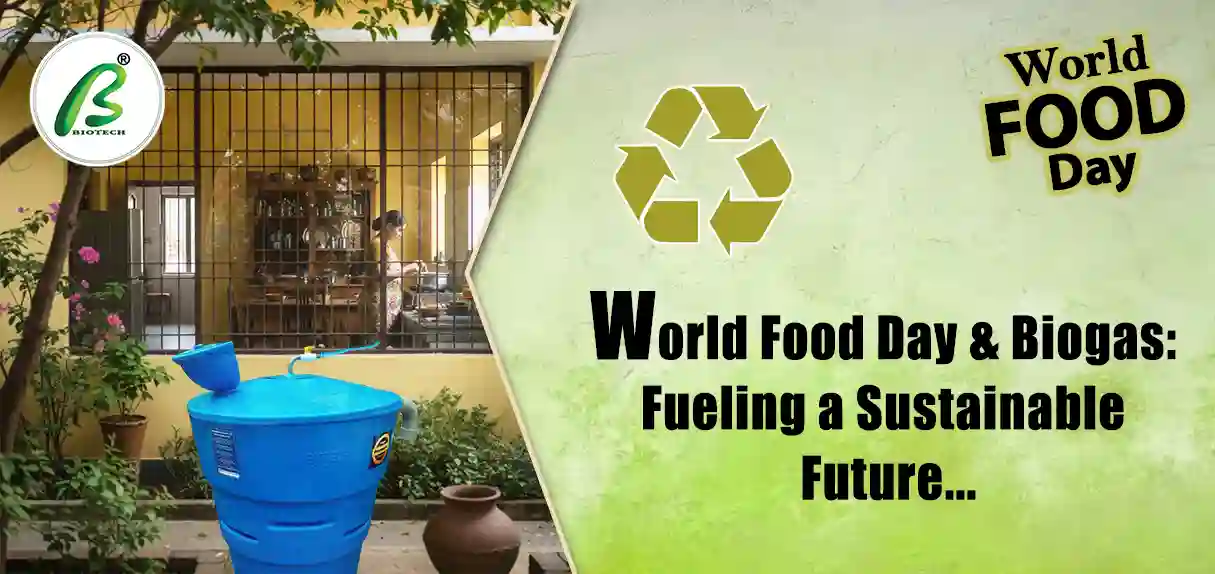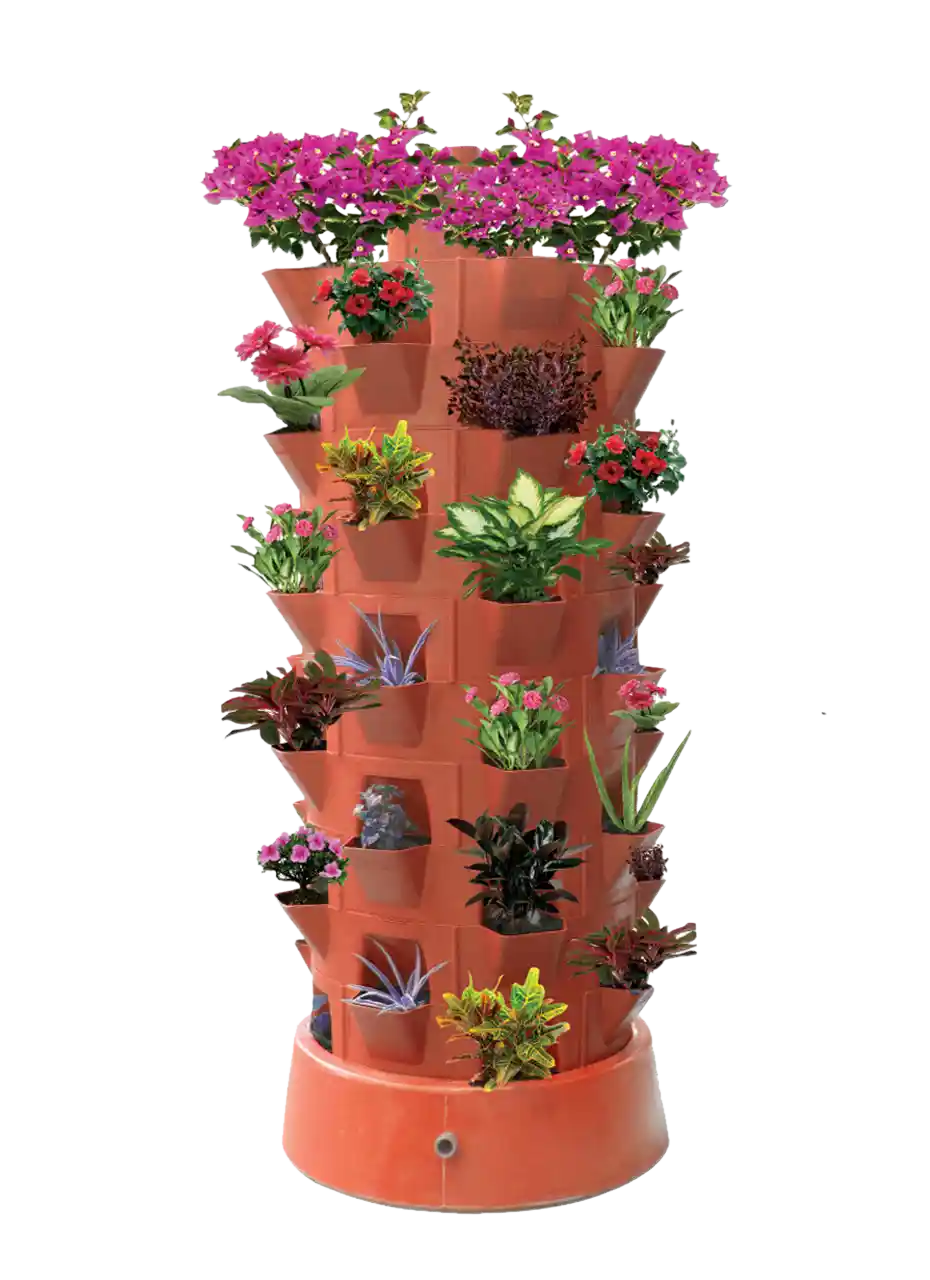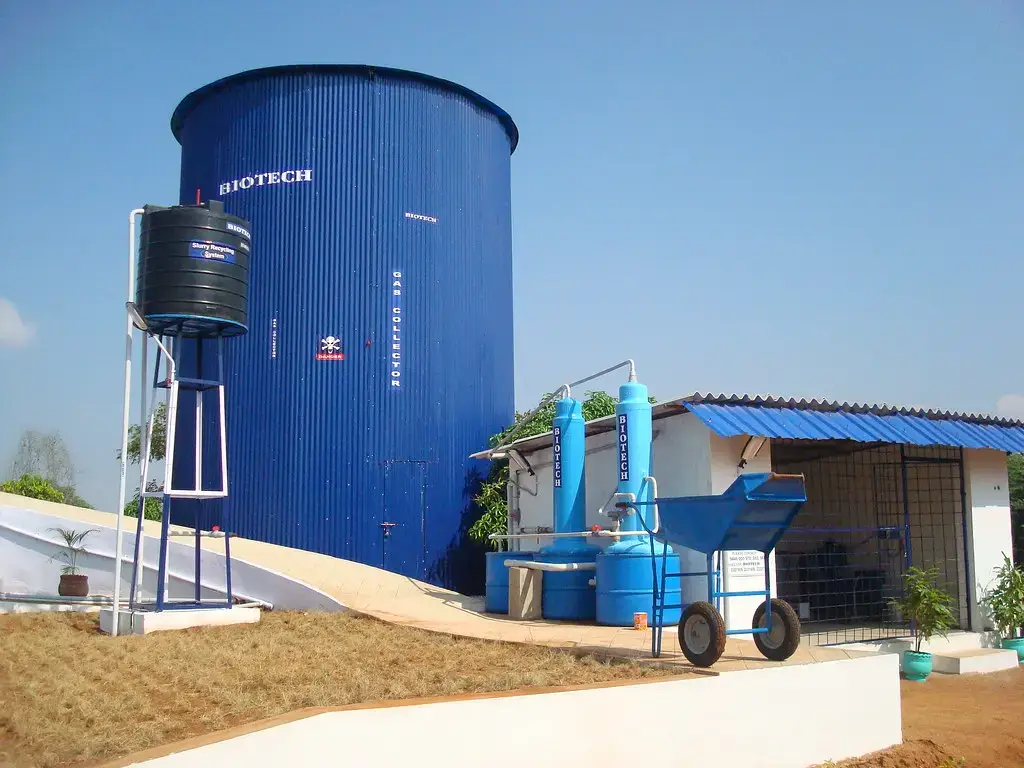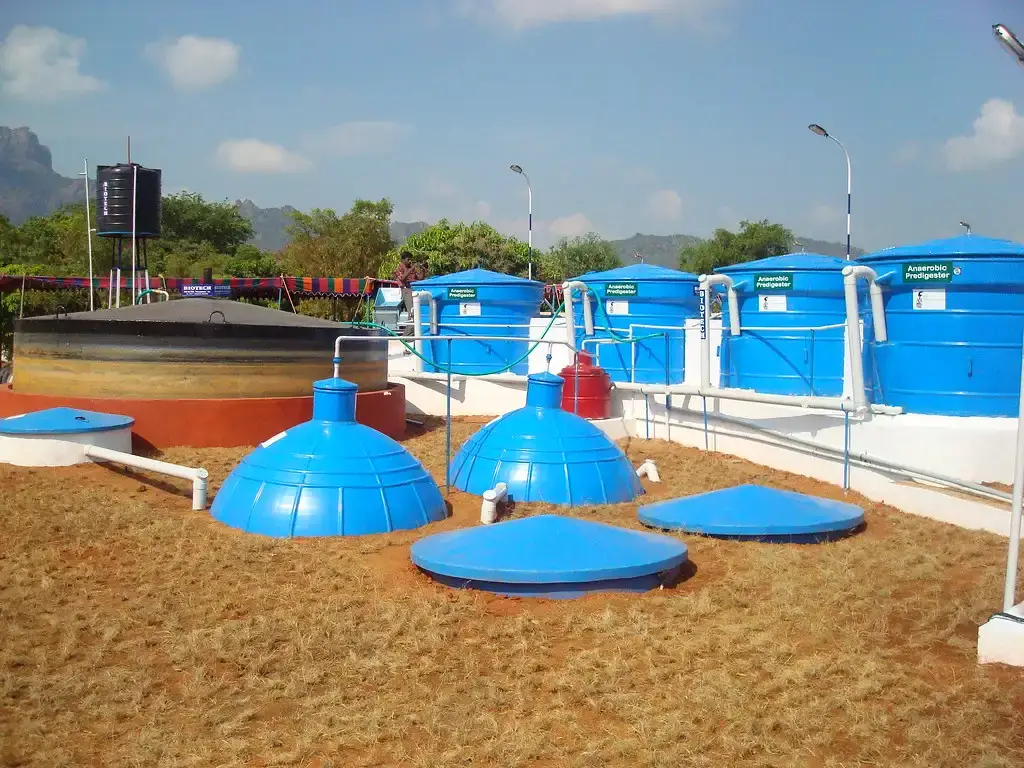
By Dr. A. Sajidas, International Biogas Consultant & Managing Director, BIOTECH Renewable Energy.
Every year on October 16, the world observes World Food Day, commemorating the founding of the Food and Agriculture Organization (FAO) of the United Nations in 1945. This day is not merely symbolic-it's a powerful reminder of our shared responsibility to eradicate hunger, ensure food security, and promote sustainable agriculture. The 2025 theme, "Hand in Hand for Better Foods and a Better Future," calls for inclusive collaboration to transform agrifood systems and build a resilient, equitable world.
Despite advances in technology and food production, over 735 million people still face hunger globally. Climate change, soil degradation, food waste, and unsustainable farming practices continue to threaten the stability of food systems. Addressing these challenges requires innovative, inclusive, and scalable solutions-and biogas technology stands out as a transformative force.
Biogas plants convert organic waste-such as food scraps, crop residues, and animal manure-into clean energy and nutrient-rich bio-slurry. This process not only reduces methane emissions (a potent greenhouse gas) but also closes the loop in food systems by turning waste into valuable resources.



1. Reducing Food Waste
Globally, nearly one-third of all food produced is wasted. Biogas plants offer a sustainable way to manage this waste, especially in urban and peri-urban areas. Instead of ending up in landfills, food waste is transformed into energy and fertilizer, contributing to cleaner cities and reduced emissions.
2. Improving Soil Health
The bio-slurry produced from biogas digesters is a potent organic fertilizer. It enhances soil fertility, improves water retention, and reduces the need for chemical inputs that harm ecosystems and contaminate food chains. Healthier soil means better yields and more nutritious food.
3. Empowering Farmers
Biogas systems provide decentralized energy for cooking, irrigation, and food processing. This is especially transformative for smallholder farmers, who gain access to reliable energy and organic inputs, reducing costs and increasing productivity.
4. Promoting Climate Resilience
By reducing reliance on fossil fuels and mitigating methane emissions, biogas contributes to climate-smart agriculture. It helps communities adapt to changing weather patterns and build resilience against climate shocks.
5. Supporting Circular Economies
Biogas embodies the principles of the circular economy-waste is not discarded but reintegrated into the production cycle. This aligns perfectly with World Food Day's vision of sustainable consumption and production.
At the heart of this movement is BIOTECH INDIA, a trailblazing organization committed to democratizing biogas technology and promoting sustainable development. Under my leadership as Managing Director, BIOTECH INDIA has become a global model for innovation, impact, and inclusive growth.
BIOTECH INDIA was founded with a clear mission: to transform organic waste into clean energy and empower communities through sustainable solutions. Our vision aligns seamlessly with the goals of World Food Day-ensuring food security, reducing waste, and building climate-resilient food systems.
One of BIOTECH INDIA's core strengths is its ability to localize biogas technology. Through strategic licensing agreements, joint ventures, and capacity-building programs, we've facilitated the transfer of biogas systems to countries across Asia, Africa, and Latin America. These efforts ensure that local communities can manufacture, maintain, and scale biogas solutions independently.


Our modular designs cater to diverse contexts-from single-household digesters to community-scale plants for schools, markets, and institutions. This adaptability makes biogas accessible to farmers, entrepreneurs, and municipalities alike.
BIOTECH INDIA has developed a comprehensive suite of technical manuals, investment profiles, and training resources that guide stakeholders in implementing biogas projects. These materials emphasize operational rigor, safety, and scalability, ensuring that projects are not only successful but sustainable.
We've also contributed to international consortiums and policy dialogues, helping shape national strategies for food security and renewable energy integration.
World Food Day is a moment to inspire-and BIOTECH INDIA excels at public engagement. Our campaigns link biogas to broader movements like climate action, SDG alignment, and community empowerment. Through social media, workshops, and school programs, we educate the public about the benefits of biogas and the importance of responsible consumption.
Our messaging bridges science and emotion, showing how biogas can transform lives, protect the planet, and build hope. From World Cleanup Day to World Environmental Health Day, we've crafted compelling narratives that resonate across cultures and generations.
BIOTECH INDIA collaborates with international organizations such as FAO, UNDP, and regional development agencies to integrate biogas into national food security strategies and climate resilience plans. These partnerships amplify our impact and ensure that biogas is recognized as a mainstream pillar of sustainable development.
We also work closely with grassroots organizations, empowering women, youth, and marginalized communities to become biogas champions in their regions.
As an international biogas consultant, I've dedicated my career to advancing biogas technology as a tool for sustainable development. My journey spans decades of advocacy, innovation, and collaboration across continents.
I've led BIOTECH INDIA's expansion through manufacturing licenses, joint ventures, and international collaborations. I've developed and delivered technical guidelines, investment profiles, and campaign messaging for global sustainability initiatives. I've coordinated multi-stakeholder reporting and documentation for international projects, ensuring transparency and impact.
My work is driven by a deep belief in inclusive development, community empowerment, and climate justice. I see biogas not just as a technology-but as a movement.
In Kenya, biogas units installed in farming cooperatives have reduced post-harvest losses and provided energy for milk chilling and grain drying. In India, community-scale digesters in Kerala have transformed food waste from markets and households into cooking fuel for schools and hostels. In Haiti, biogas systems have replaced charcoal in disaster-prone areas, reducing deforestation and improving health outcomes.
BIOTECH INDIA has played a pivotal role in these success stories-providing technology, training, and strategic support. These stories are not isolated-they are part of a growing global movement that sees waste as opportunity and energy as empowerment.
To fully realize the potential of biogas in achieving World Food Day's goals, we must:
Integrate biogas into national food and energy policies Invest in research and innovation, especially for feedstock optimization and modular designs Support local manufacturing and entrepreneurship Educate communities about the benefits and maintenance of biogas systems Foster cross-sector partnerships that link agriculture, energy, health, and environment.
At BIOTECH INDIA, we are expanding our global footprint through new licensing agreements, pilot projects, and digital platforms that make biogas knowledge accessible to all.
We are also exploring synergies with solar, water recycling, and composting technologies to create integrated sustainability hubs-especially in climate-vulnerable regions.
World Food Day is a reminder that food is not just a commodity-it's a right, a culture, and a connection to the Earth. Biogas technology honors this connection by making food systems more just, resilient, and regenerative.
To my fellow experts, activists, and dreamers: let's continue to innovate, collaborate, and advocate. Let's turn every banana peel, every cow dung, every crop residue into a beacon of hope. Let's build a world where no one goes hungry, and no resource goes to waste.
Whether you're a policymaker, farmer, student, or entrepreneur, you have a role to play. Share this message, support biogas initiatives, and be part of the solution.
Together, we can turn waste into wealth, energy into equity, and vision into reality.
Telephone: +91-471-2331909, 2321909, 2332179
E-mail: mailtobiotech@gmail.com


Ernakulam (Cochin)
Telephone: +91-484-4858695
E-mail: mailtobiotech@gmail.com


Kozhikode (Calicut)
Mob : +91-9446-000-962
E-mail: mailtobiotech@gmail.com


Telangana
Telephone: +91 40 29330078 , +919446000968
E-mail: gtp.nird@gmail.com

